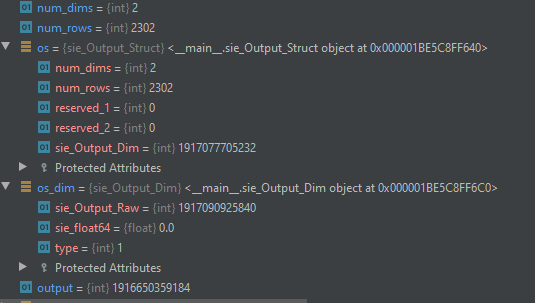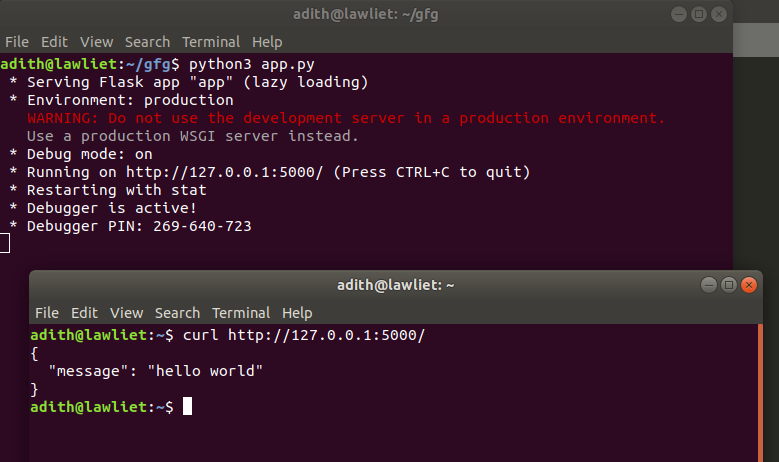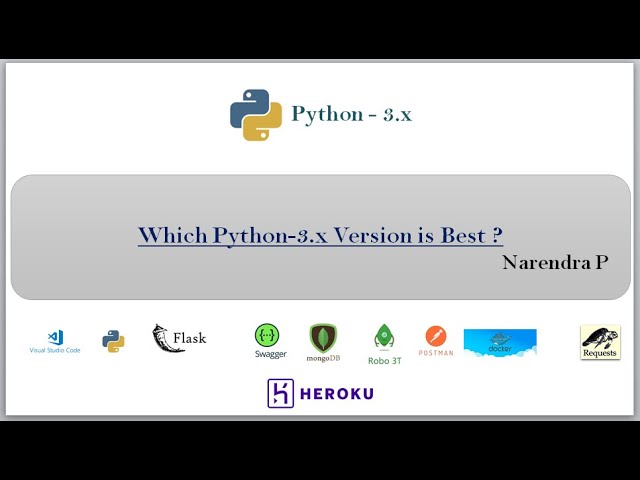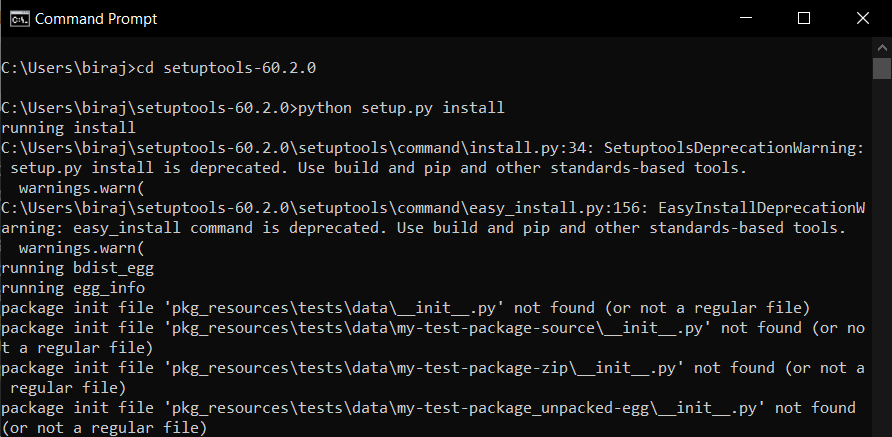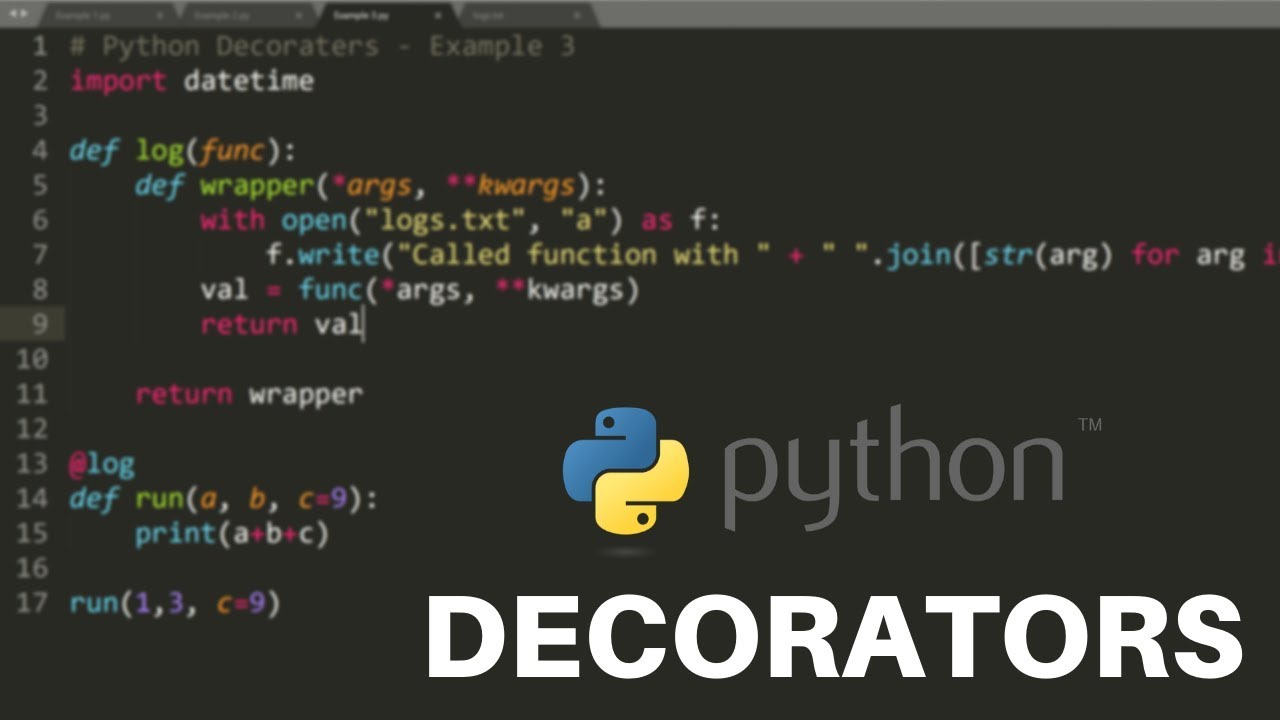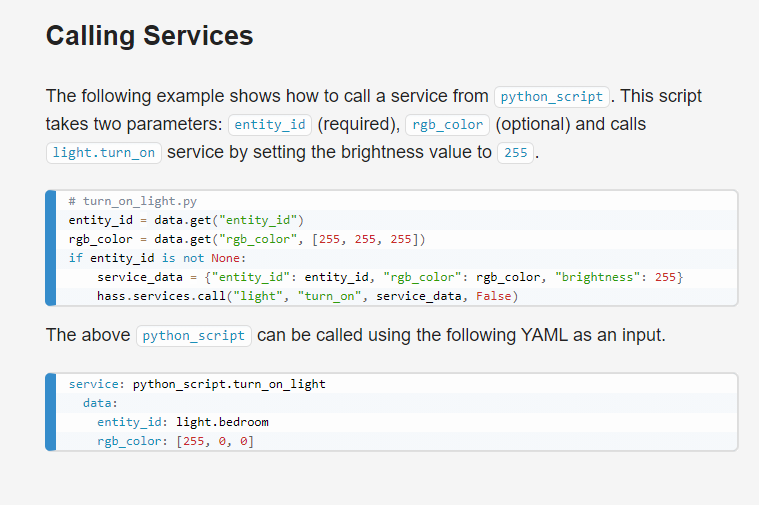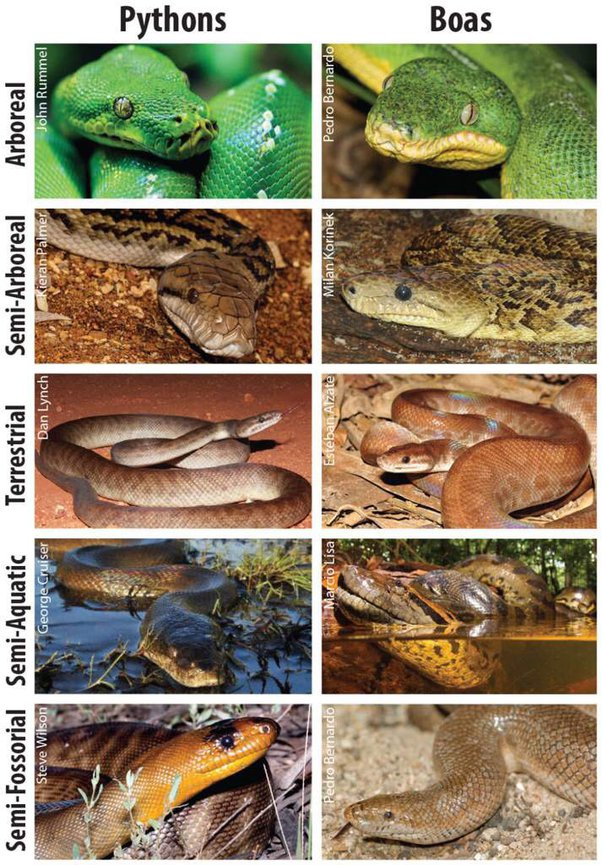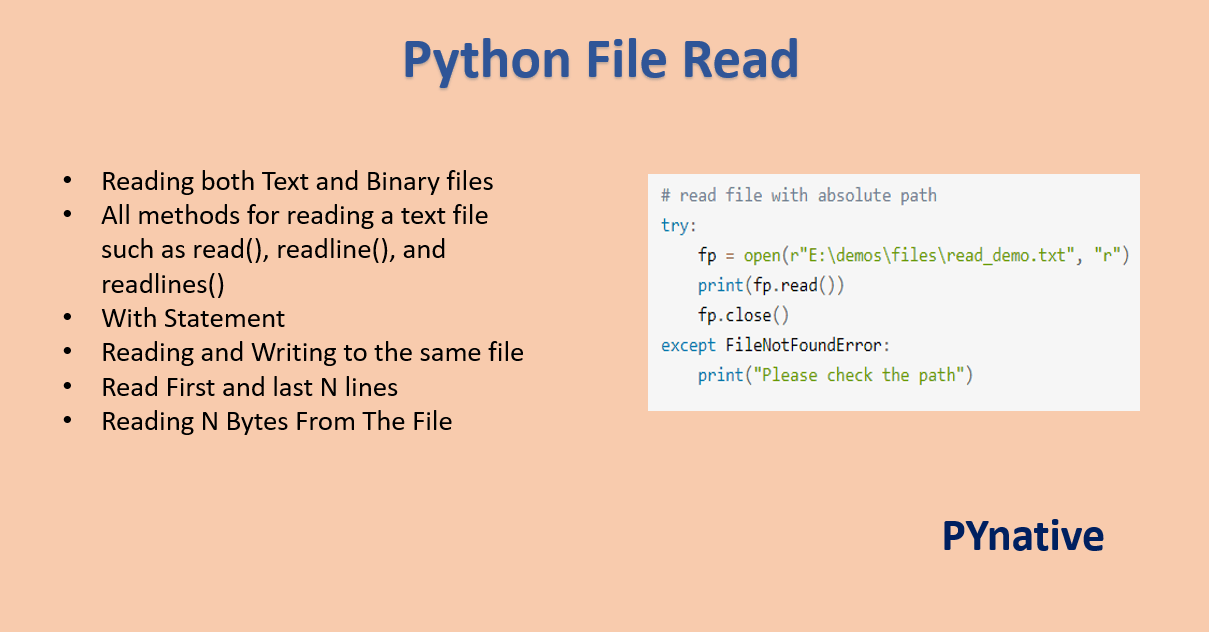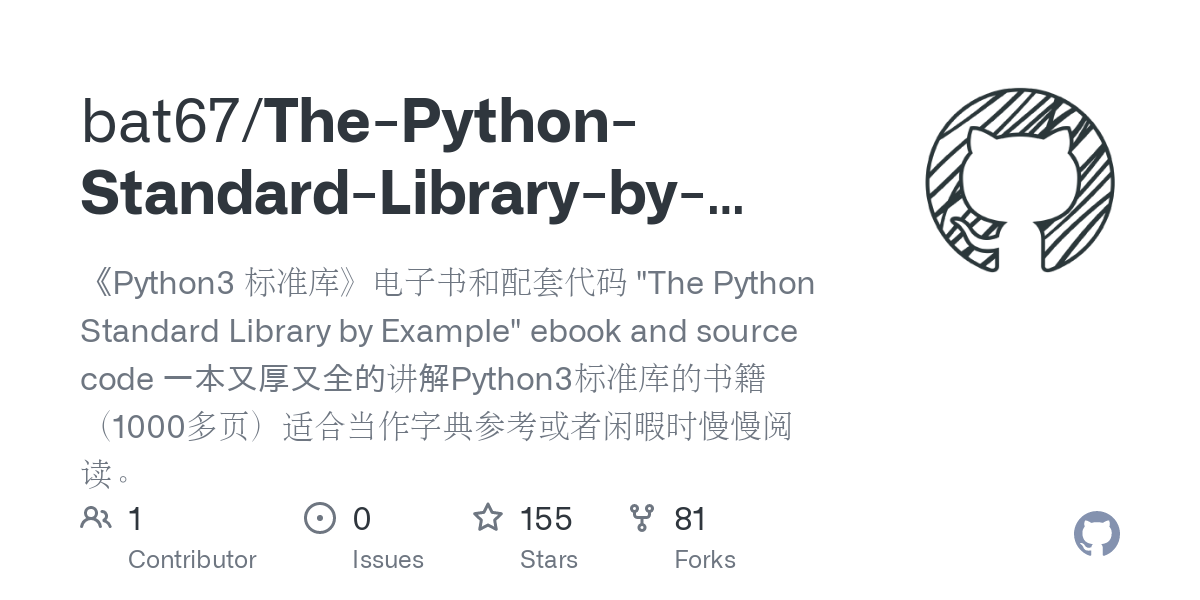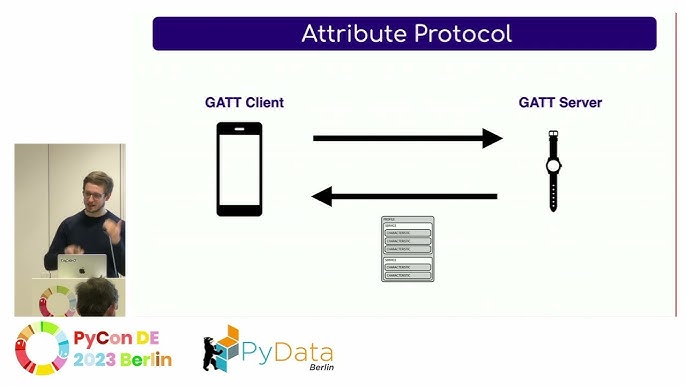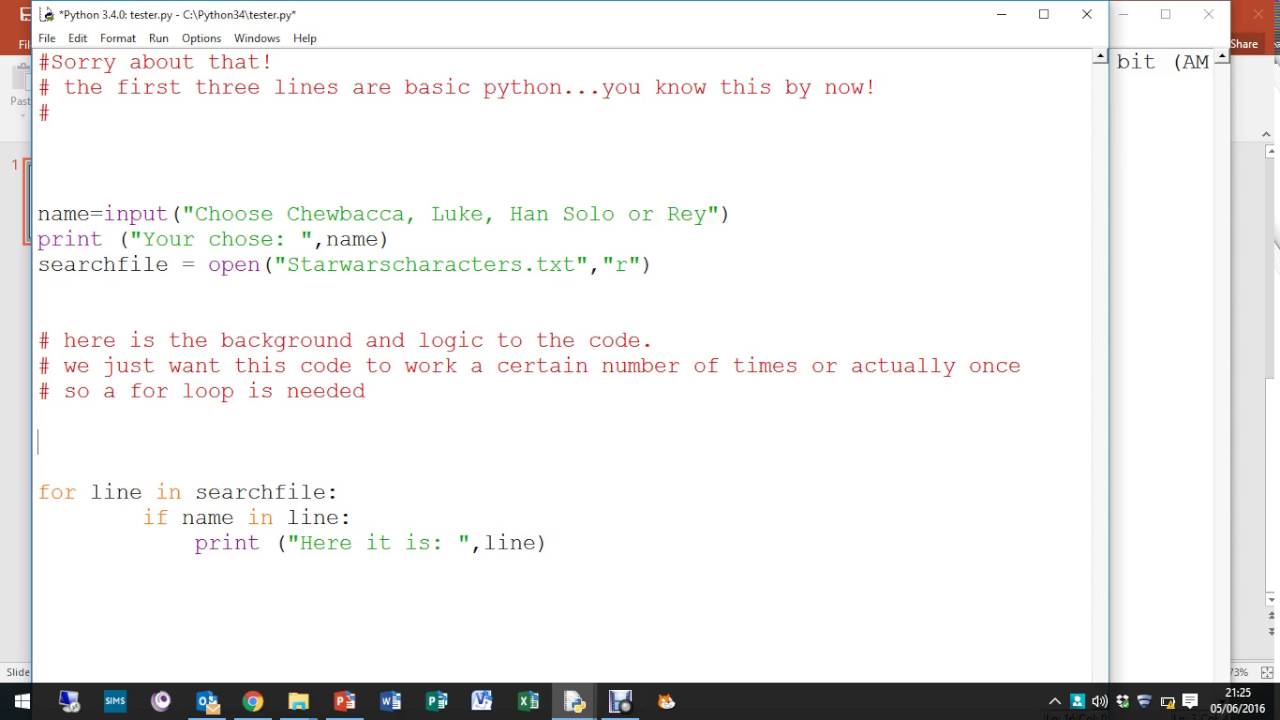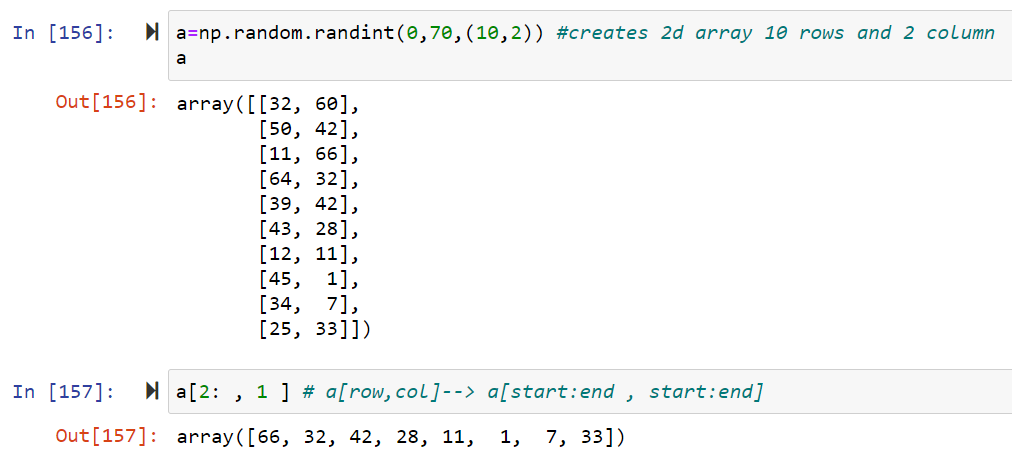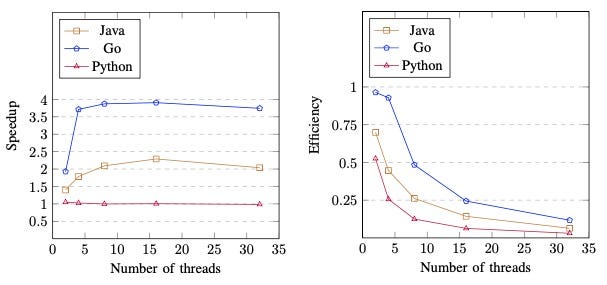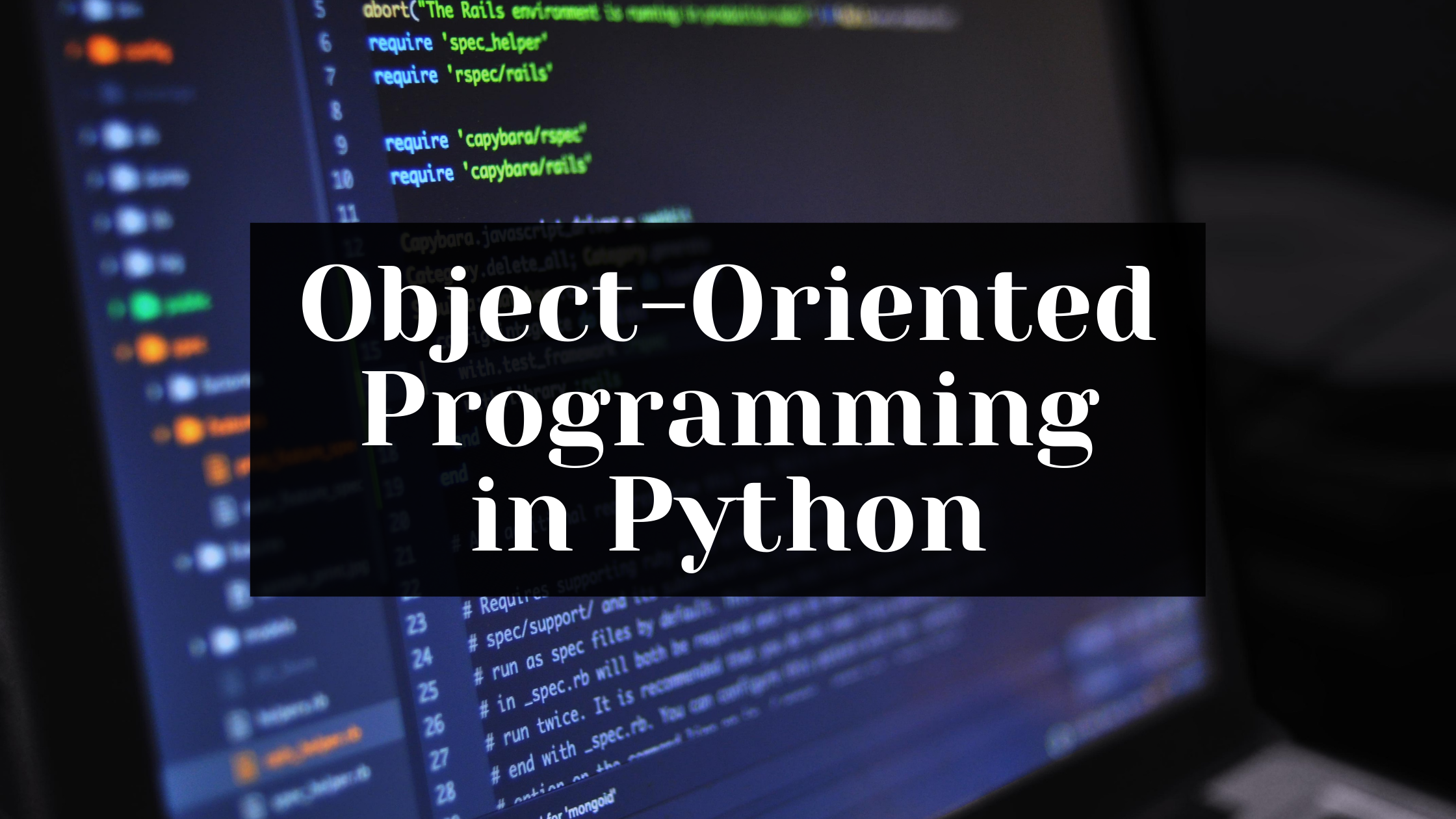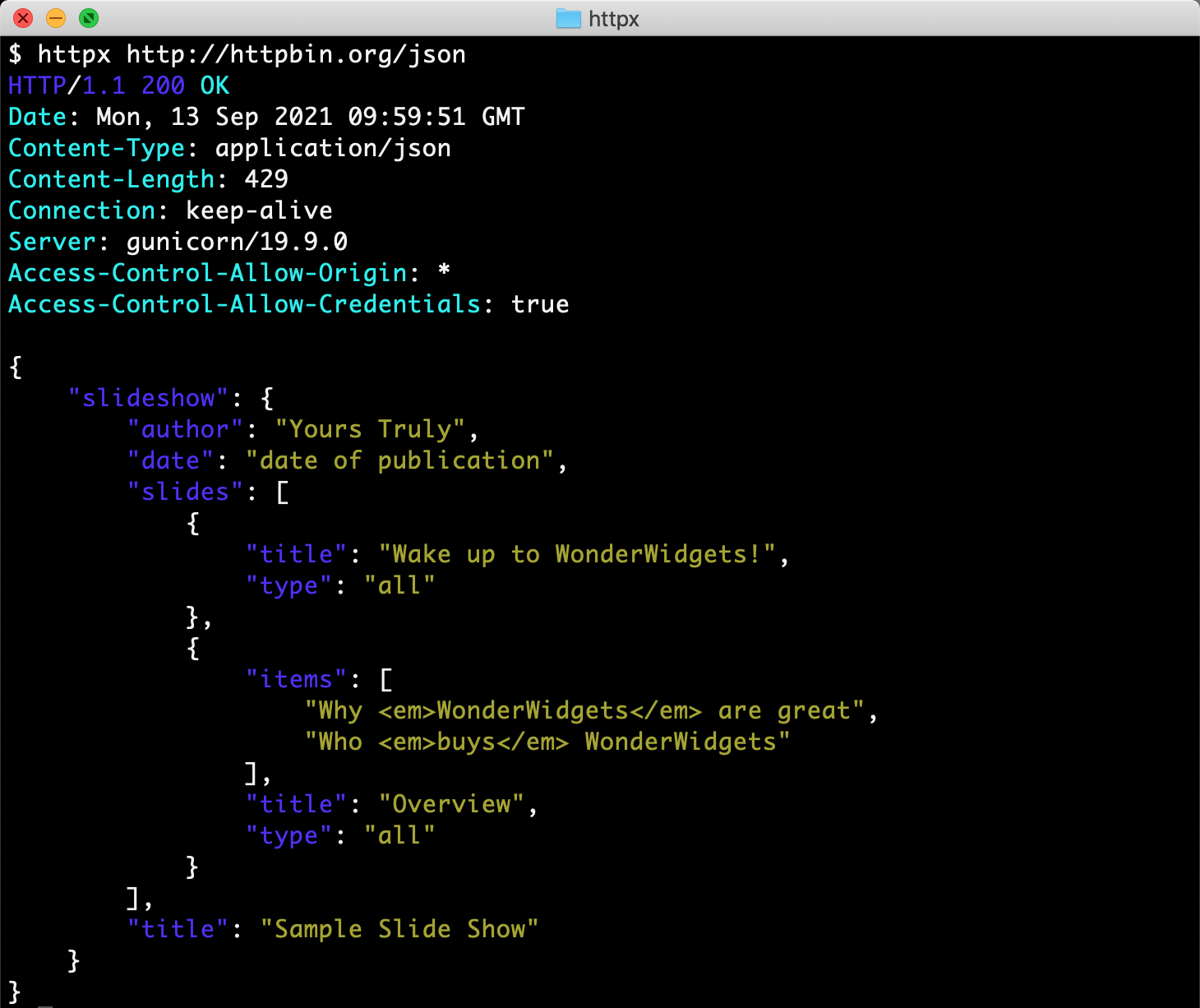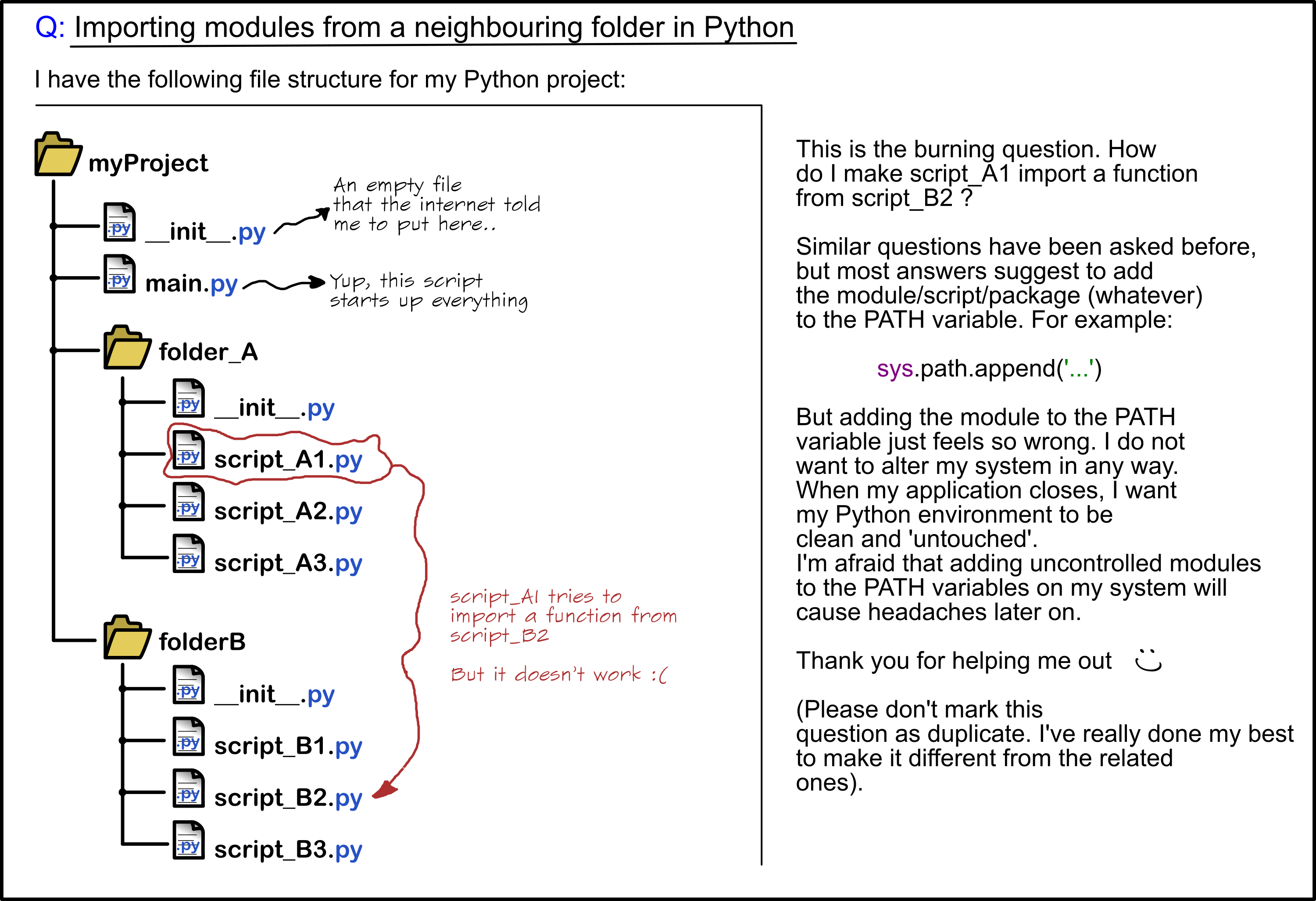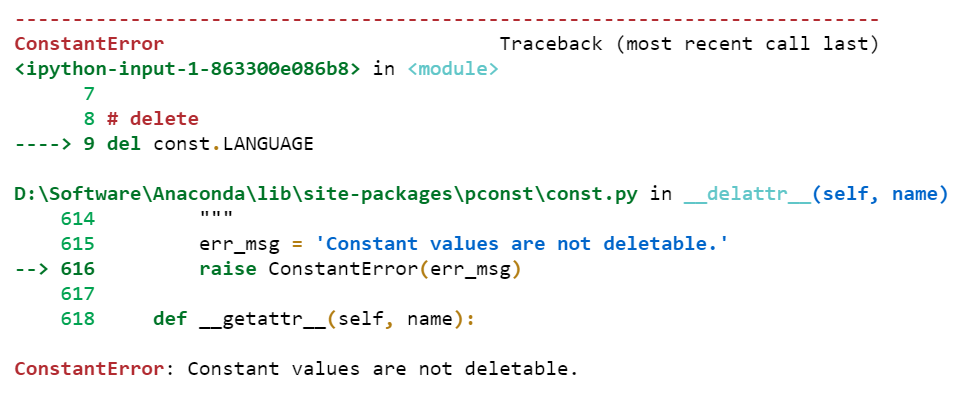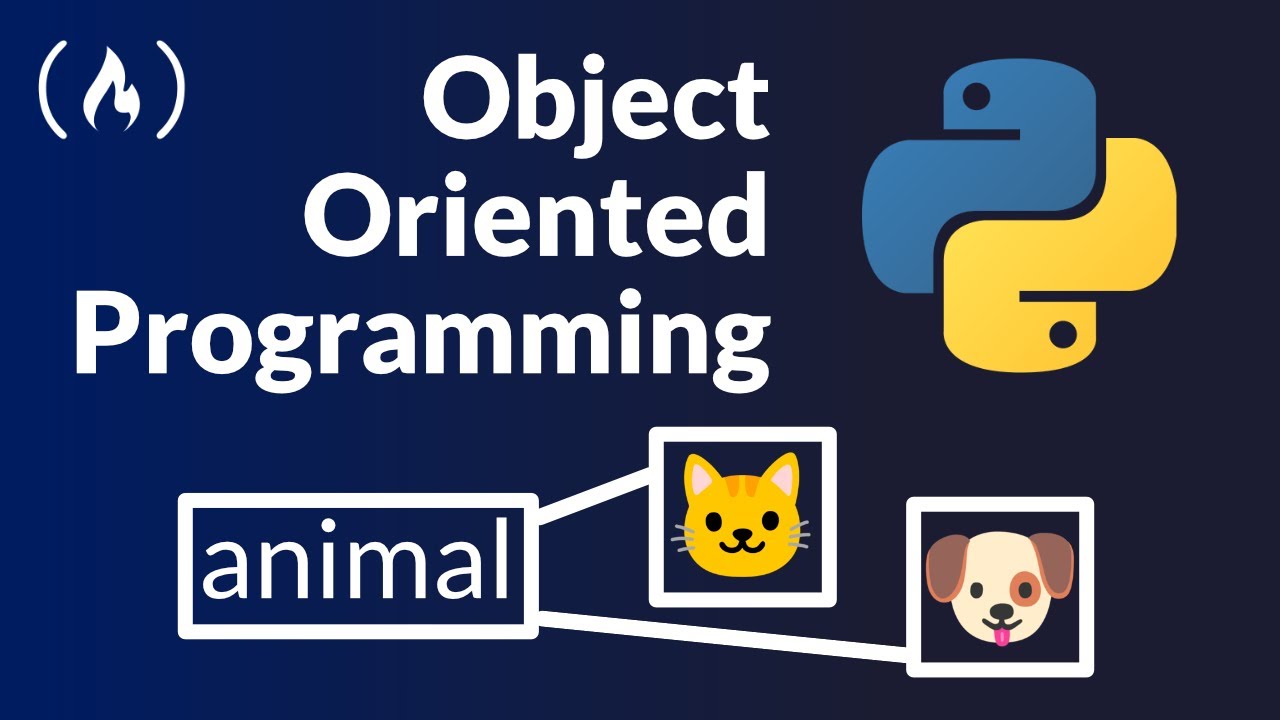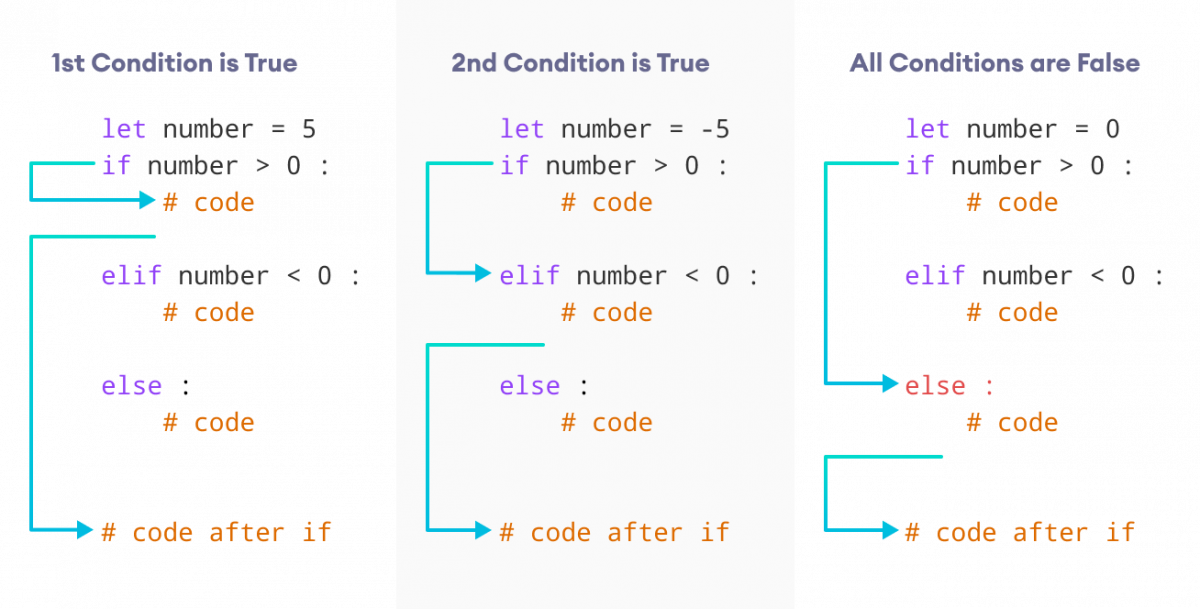When to use elif and else in Python
When to use elif and else in Python
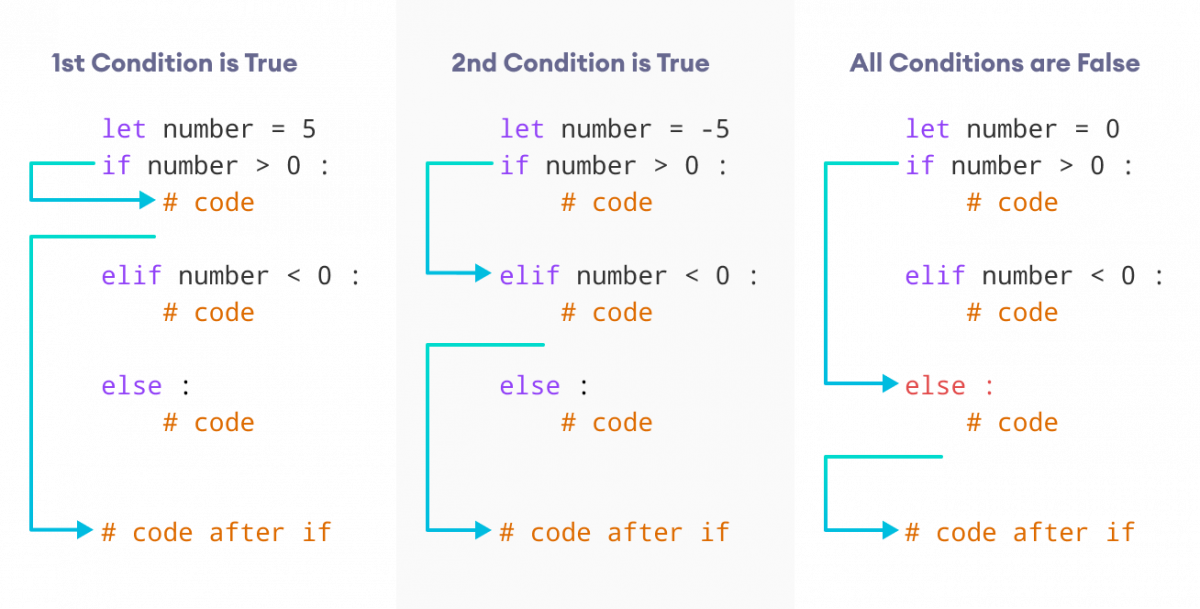
I'm happy to help you with that!
In Python, the if-elif-else structure is used to control the flow of a program based on conditions or statements. Understanding when to use elif and else is crucial in writing efficient and readable code.
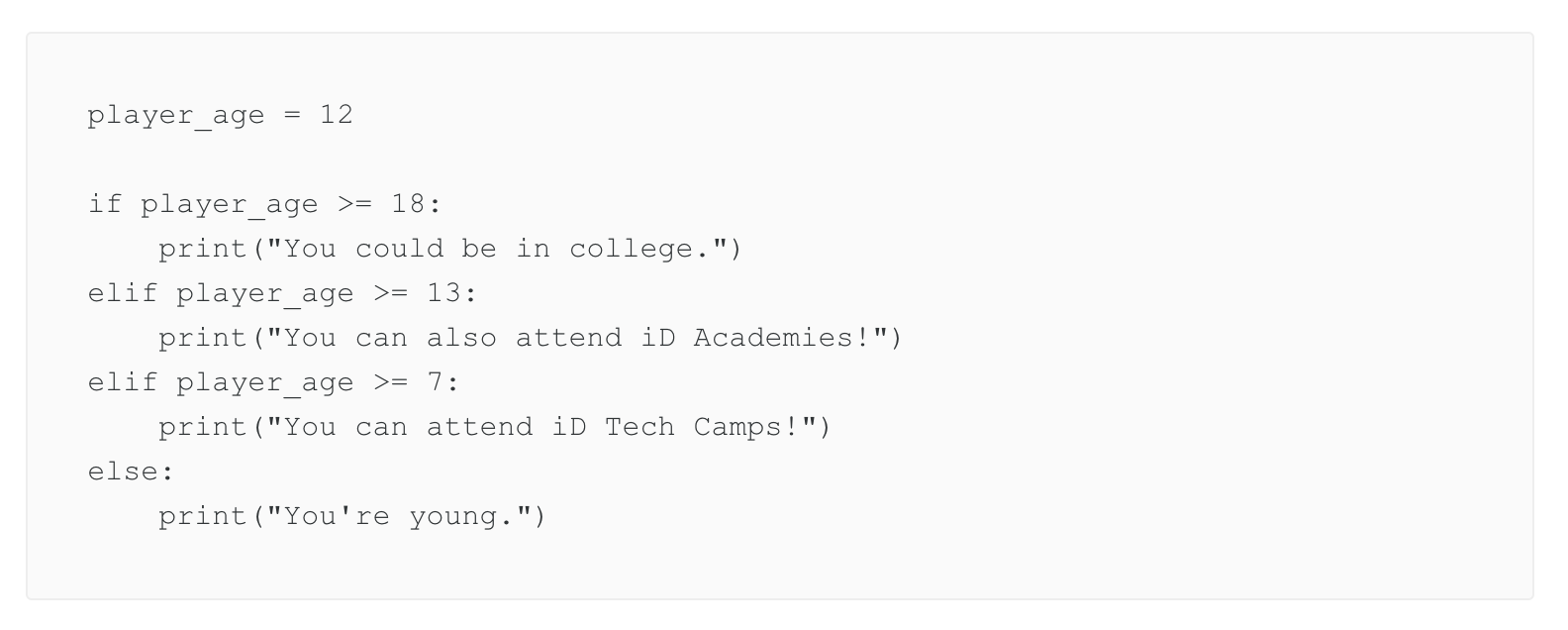
What are if, elif, and else?
If: Theif statement is used to execute a block of code only if a specific condition is met. It's like saying "only if this is true, do something." Elif (Else-If): The elif statement is used when you have multiple conditions that need to be checked in sequence. It's like saying "try this first, if not, try that next..." Else: The else statement is used as a catch-all or default case when none of the previous conditions are met. It's like saying "if none of these are true, then do this."
When to use each?
Use If: When you only need to execute code based on one specific condition. When the condition is simple and doesn't require complex logic.Example:
x = 5
if x > 10:
print("x is greater than 10")
Example:
x = 5
if x > 10:
print("x is greater than 10")
elif x == 5:
print("x is equal to 5")
else:
print("x is less than 10")
Example:
x = 2
if x > 5:
print("x is greater than 5")
elif x == 2:
print("x is equal to 2")
else:
print("x is less than or equal to 5")
Best Practices
Useelif and else statements only when necessary. Keep the conditions simple and easy to read. Use whitespace and indentation to make your code readable.
In conclusion, if, elif, and else statements are essential in Python programming. Understanding when to use each will help you write efficient, readable, and maintainable code. Always keep in mind that simplicity is key, so don't overcomplicate things!
Can we use if and elif without else in Python?
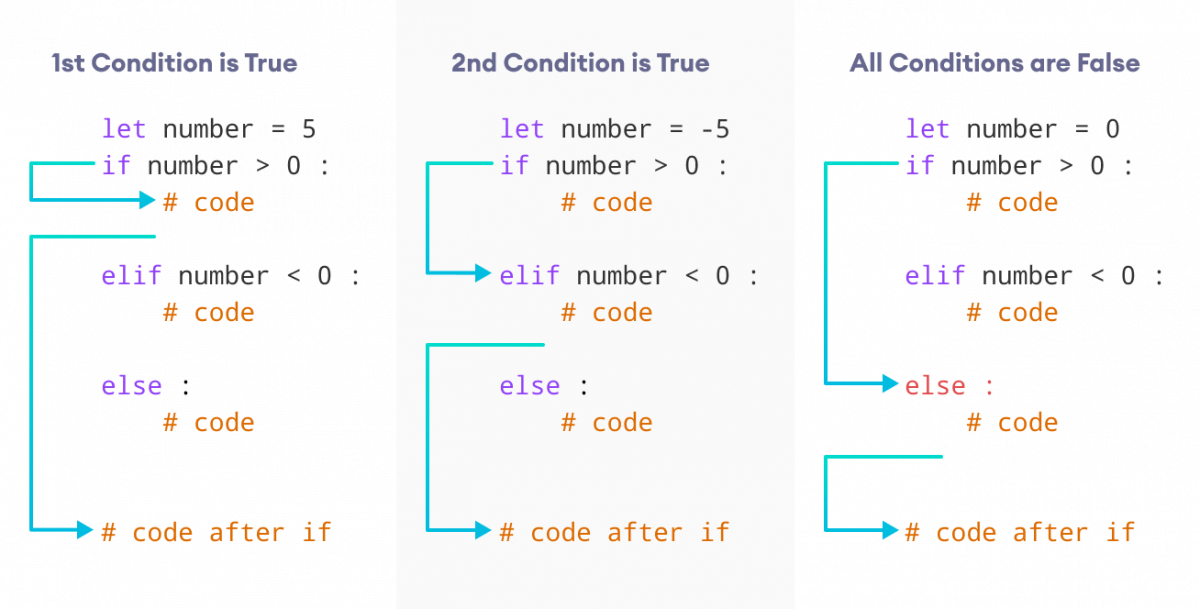
The question of the day!
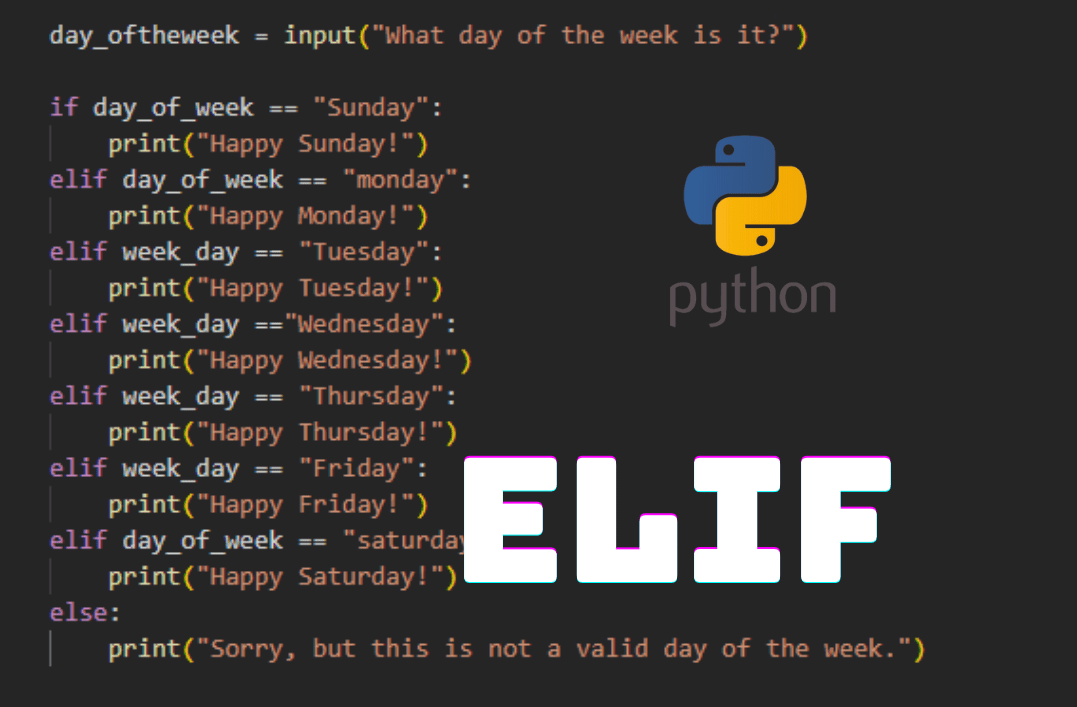
In Python, you can definitely use if statements with elif clauses without an else clause. In fact, it's a common and perfectly valid way to structure your conditional logic.
To understand why this is possible, let's take a step back and look at how if-elif-else statements work in Python:
if statement checks a condition and executes the code inside the block if the condition is True. If the condition is False, Python looks for an elif clause that matches the current situation. If no elif clause matches, Python skips to the next statement after the if-elif-else block.
Now, let's say you want to use if and elif without an else. You can do this by simply omitting the else clause:
def check_condition(x):
if x > 5:
print("x is greater than 5")
elif x == 5:
print("x is equal to 5")
No else clause here!
In this example, when you call check_condition(4), Python will execute the first two conditions (i.e., if and elif) but since neither matches (x is not greater than 5 nor equal to 5), it simply skips to the next statement after the function.
This might seem counterintuitive at first, but remember that else is optional in Python's if-elif-else statements. If you don't need an else clause, just omit it!
Some important notes:
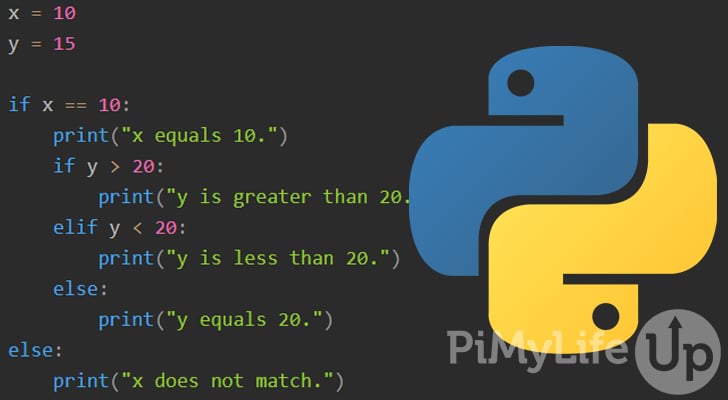
if-elif without an else, be careful not to forget a crucial condition or accidentally skip over important logic. In some cases, using if-elif with an else can make your code more readable and easier to maintain.
In summary, yes, you can definitely use if statements with elif clauses without an else in Python. Just remember that if a condition doesn't match, Python will simply move on to the next statement, so be mindful of your logic flow!



